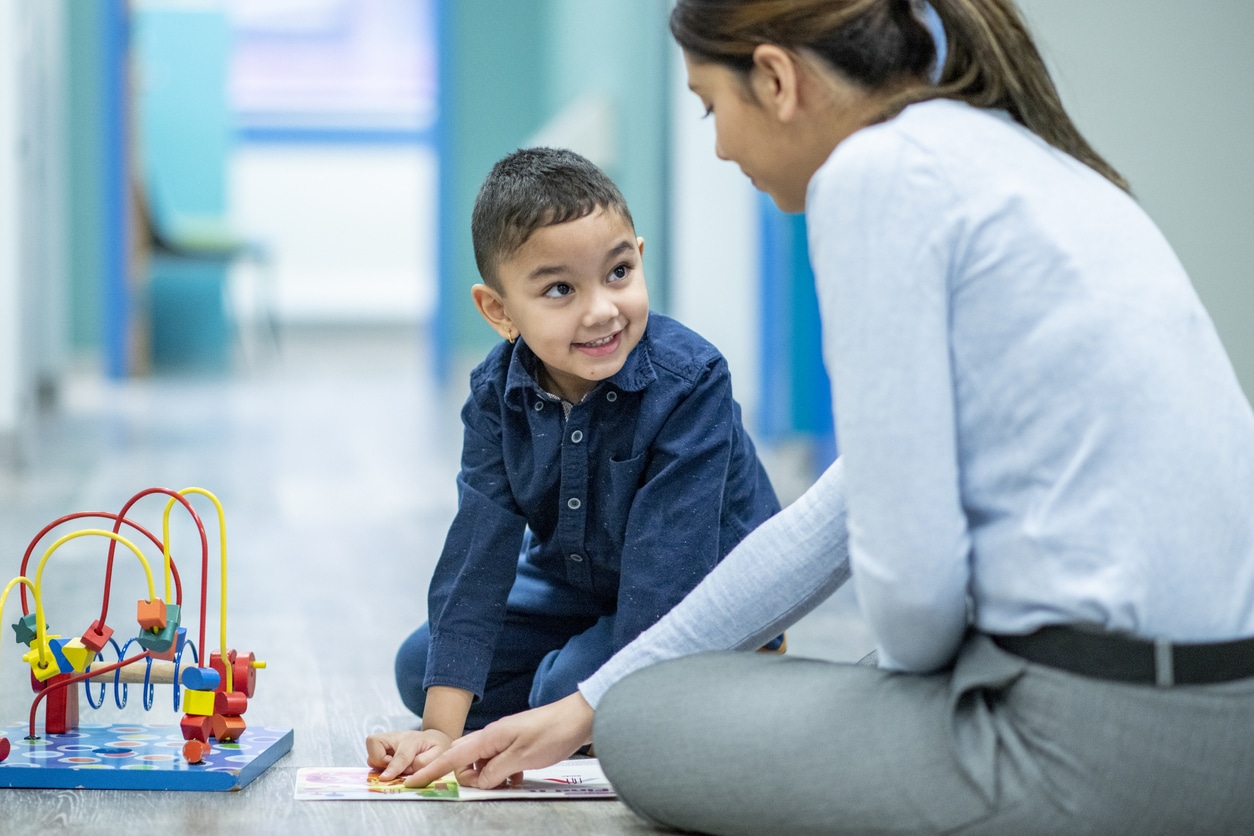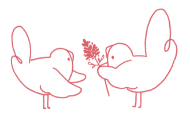What to Expect During ABA Therapy Sessions

Applied Behavior Analysis (ABA) focuses on utilizing strategies, such as positive reinforcement and other behavior modification techniques to teach new skills and improve social interactions in children with autism. If your child is about to begin ABA therapy, you may be wondering what to expect during the sessions. Full-time ABA programs can be highly structured and individualized, and they typically involve a variety of techniques and activities to address specific goals .Understanding what a typical day at a full-time ABA program looks like can help provide peace of mind about your child’s treatment and care.
What to Expect During Full-Time ABA Therapy Sessions
Full-time ABA therapy sessions for children and teenagers can be highly intensive and with many programs taking place 6-8 hours each week day. A team of trained Board Certified Behavior Analysts (BCBA) and Registered Behavior Technicians (RBT) will work with your child in one-on-one and group settings, implementing a variety of strategies tailored to your child’s specific needs and goals. Here are some of the things you can expect for your child to participate in day to day during their ABA therapy program.
Pairing
Pairing is a crucial time for the Registered Behavior Technician (RBT) and your child to establish a strong therapeutic relationship by building rapport. During this time, the RBT engages in freeform play with the patient that doesn’t include giving instruction or direction. The RBT may also engage in conversation with your child about their interest and/or time outside of the clinic. This approach helps create a positive and enjoyable experience for the patient, which can lead to increased trust and comfort with the RBT. By focusing on developing a strong bond during pairing, the RBT can effectively introduce and implement behavior modification techniques later in the therapy sessions.
Physical Activity Bursts
Our activity bursts are structured and time-limited bursts of physical activity that last for six minutes, which accumulates to 30 minutes of physical activity each day. These activity bursts are conducted in a group format and led by a group leader who provides instructions and guidance throughout the session. Each burst of activity is unique, and children engage in a different physical activity each time to boost engagement.
Discrete Trial Training
Discrete Trial Training (DTT) is a widely used technique in ABA. It is a structured and highly focused approach to teaching new skills and concepts to children with autism. In DTT, the RBT breaks down the targeted skill or behavior into small, discrete steps and teaches each step separately. The child is then presented with a series of trials or opportunities to perform the skill, and the RBT provides positive reinforcement for doing it correctly. It is used one-on-one and in small groups at a table setting, and it can be easily adapted to suit the individual needs of each child.
Natural Environment Training
Natural Environment Training (NET) is a strategy used in ABA therapy for children that focuses on teaching skills in the child’s natural environment. The goal of NET is to help children generalize communication and social skills learned in therapy to real-world settings, such as their home, school, or community. Unlike Discrete Trial Training (DTT), which is highly structured and focused, NET is more naturalistic and flexible. It incorporates play-based activities and learning opportunities within a child’s everyday routines. RBTs create learning opportunities in group settings by using the child’s interests and motivation to encourage participation and learning.
Group Physical Education
Similar to a more traditional education setting, your child will participate in daily physical education. During this time, children participate in structured physical activities in a group setting, which can help improve their social skills and promote physical fitness. This also allows your child to work on their gross motor skills. The physical activities are designed to be fun and engaging by incorporating games, team-building exercises, and individual challenges. By participating in group P.E., children have the opportunity to interact with peers and learn cooperation and sportsmanship. This can help build confidence and self-esteem, while also promoting physical health and wellbeing.
Art and Music Sessions
Just like traditional school settings, art and music are included daily as part of full-time ABA programs. These sessions provide a creative outlet for children to express themselves, develop fine motor skills, and engage in sensory-based activities. Art and music can be particularly beneficial for children who struggle with communication, as they provide an alternative means of self-expression. In art sessions, children may be encouraged to explore different mediums, such as painting, drawing, and collage. In music sessions, children may have the opportunity to sing, play instruments, and engage in rhythm-based activities.
At Empower Behavioral Health, our full-time ABA day programs throughout Texas focus on helping children with autism develop the skills needed to reach their full potential. Each of these techniques and activities are included in our daily schedule. With our low clinician to patient ratio, your child will receive the individual attention they need to achieve their behavior and developmental goals. We also utilize positive reinforcement throughout sessions to ensure our activities remain engaging, fun, and effective. Contact us to learn more or get started today.

